 In honor of the decision by students at the University of Pennsylvania to replace Shakespeare’s portrait (too stale, pale, and male for our newest crop of intellectuals,) with Audre Lorde’s, (“African American writer, civil rights activist and self-described, “black, lesbian, mother, warrior, poet.'”) I decided to read a batch of Lorde’s poetry to see how it stacks up against the bard’s.
In honor of the decision by students at the University of Pennsylvania to replace Shakespeare’s portrait (too stale, pale, and male for our newest crop of intellectuals,) with Audre Lorde’s, (“African American writer, civil rights activist and self-described, “black, lesbian, mother, warrior, poet.'”) I decided to read a batch of Lorde’s poetry to see how it stacks up against the bard’s.

But to make this more fun, I’ve decided to pair each Lorde poem (chosen from those available on PoemHunter.com) with a poem on a similar theme from Shakespeare and let you vote for the ones you think are genuinely the best. (I wanted to make two columns so you can read the poems side-by-side, but I’m not sure how to code that, so I just photoshopped the poems together. Let me know if they aren’t readable.)
EvX: I decided to cut #4, because it was quite long. We still have 5/7 listed on PoemHunter.
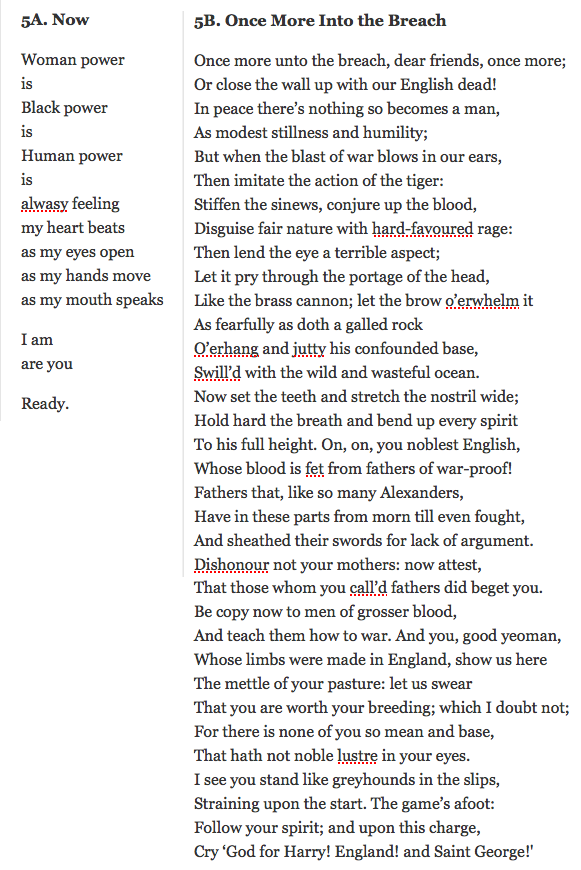
(Lest you question my technique in choosing these poems, my methodology was relatively simple: first I headed to the local library, in search of this famous poet’s marvelous books. Alas, even though Lorde published a grand total of 17 books of poems and essays, [including a posthumous collection of writings not previously deemed worth publishing,] coming admirably close to Shakespeare’s 38 plays and 154 sonnets, the local library is mysteriously bereft of her work; I could find only one poem and a couple of essays in large anthologies.
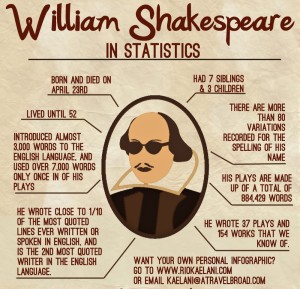 So I turned to the internet, as mentioned. PoemHunter.com, which lists about 400 entries for Skakespeare, also lists 7 poems for Lorde. I assume these particular poems are on the site because Lorde’s fans believe them to be particularly excellent examples of her work, and so decided to use them for my comparison. After excluding one for obscenity and one for length, I was left with a reasonable 5, which I then tried to match against poems of similar theme from William Shakespeare.)
So I turned to the internet, as mentioned. PoemHunter.com, which lists about 400 entries for Skakespeare, also lists 7 poems for Lorde. I assume these particular poems are on the site because Lorde’s fans believe them to be particularly excellent examples of her work, and so decided to use them for my comparison. After excluding one for obscenity and one for length, I was left with a reasonable 5, which I then tried to match against poems of similar theme from William Shakespeare.)
Now at this point, you may be asking yourself, “Who is this grand Shakespearess? Whence hailed this ebony poet of warrior’s virtue?”
According to Wikipedia:
Lorde was born in New York City to Caribbean immigrants from Barbados and Carriacou, Frederick Byron Lorde (called Byron) and Linda Gertrude Belmar Lorde, who settled in Harlem. Lorde’s mother was of mixed ancestry but could pass for white, … Lorde’s father was darker than the Belmar family liked, and they only allowed the couple to marry because of Byron Lorde’s charm, ambition, and persistence.[3]… [Audre] learned to talk while she learned to read, at the age of four, and her mother taught her to write at around the same time. She wrote her first poem when she was in eighth grade.
Now, this brought me to a dead stop, because most children begin talking around the age of one, not four. By the age of two, the average child can form two-word sentences; a two year old who is not talking needs to be seen by a medical professional to ascertain if they have some physical or mental disability (such as hearing loss or jaw difficulties.) And according to Early and Late Talkers: school-age language, literacy, and neurolinguistic differences:
In this study, 174 elementary school-age children whose parents reported that they started forming sentences ‘early’, ‘on-time’ or ‘late’ were evaluated with standardized measures of language, reading and spelling. All oral and written language measures revealed consistent patterns for ‘early’ talkers to have the highest level of performance and ‘late’ talkers to have the lowest level of performance…
In short, a kid who doesn’t start talking until the age of four is most likely severely retarded. The claim here that Audre Lorde began talking at the age of four, with no given explanation for why and no indication of mental impairment, is extremely suspect. (Though I note that people in Lorde’s day didn’t rush to get their kids autism diagnoses like we do today. Wikipedia’s claim that:
As a child, Lorde, who struggled with communication, came to appreciate the power of poetry as a form of expression.[8] She memorized a great deal of poetry, and would use it to communicate, to the extent that, “If asked how she was feeling, Audre would reply by reciting a poem.”[9]
is consistent with autism and other developmental disorders, so perhaps Lorde is indeed a high-IQ autist who simply began speaking late.)
Lorde’s relationship with her parents was difficult from a young age. She was able to spend very little time with her father and mother, who were busy maintaining their real estate business…
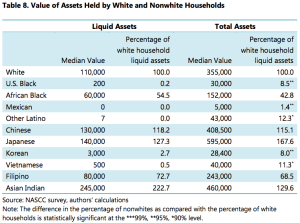 So Audre Lorde is basically the half-white, half-black daughter of rich immigrants who lived in NYC. (Even when liberals are clearly trying their hardest, they still somehow can’t find a poet who is actually a member of America’s historical black community. Perhaps libs just aren’t good at distinguishing between different groups of non-whites, hence their habit of just lumping them all together in an undifferentiated mass of “POCs.”)
So Audre Lorde is basically the half-white, half-black daughter of rich immigrants who lived in NYC. (Even when liberals are clearly trying their hardest, they still somehow can’t find a poet who is actually a member of America’s historical black community. Perhaps libs just aren’t good at distinguishing between different groups of non-whites, hence their habit of just lumping them all together in an undifferentiated mass of “POCs.”)
In New York, Lorde she was subject to such rampant discrimination that she was forced to attend Hunter College High School:
Hunter College High School is a secondary school for intellectually gifted students located on the Upper East Side of Manhattan. It is administered by Hunter College of the City University of New York (CUNY). Hunter is publicly funded, and there is no tuition fee. According to the school, “students accepted to Hunter represent the top one-quarter of 1% of students in New York City, based on test scores.”[1]
Hunter has been ranked as the top public high school in the United States by both The Wall Street Journal and Worth.[2][3][4] The New York Times called Hunter “the prestigious Upper East Side school known for its Ivy League-bound students” and “the fast track to law, medicine and academia.”[5] Publicly available data indicate that Hunter has the highest average SAT score, the highest average ACT score and the highest percentage of National Merit Finalists of any high school in the United States, public or private.[6][7]
Evil Jim Crow laws and homophobia then so shut Lorde out of college and job opportunities that she was basically homeless and starving in the streets:
In 1954, she spent a pivotal year as a student at the National University of Mexico, a period she described as a time of affirmation and renewal, during which she confirmed her identity on personal and artistic levels as a lesbian and poet. On her return to New York, she attended Hunter College, graduating class of 1959. There, she worked as a librarian, continued writing and became an active participant in the gay culture of Greenwich Village. She furthered her education at Columbia University, earning a master’s degree in Library Science in 1961. She also worked during this time as a librarian at Mount Vernon Public Library and married attorney Edwin Rollins; they divorced in 1970 after having two children, Elizabeth and Jonathan. In 1966, Lorde became head librarian at Town School Library in New York City, where she remained until 1968.[10]
In 1968 Lorde was writer-in-residence at Tougaloo College in Mississippi,[11] …
In 1984 Audre Lorde started a visiting professorship in Berlin Germany at the Free University of Berlin. She was invited by Dagmar Schultz who met her at the UN “World Women’s Conference” in Copenhagen in 1980. While Lorde was in Germany she made a significant impact on the women there and was a big part of the start of the Afro-German movement.[13] The term Afro-German was created by Lorde and some Black German women as a nod to African-American. During her many trips to Germany, she touched many women’s lives including May Ayim, Ika Hügel-Marshall, and Hegal Emde. All of these women decided to start writing after they met Audre Lorde.[14] She encouraged the women of Germany to speak up and have a voice. … Her impact on Germany reached more than just Afro-German women. Many white women and men found Lorde’s work to be very beneficial to their own lives. They started to put their privilege and power into question and became more conscious.[14]
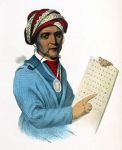
See, pre-Lorde Germans were basically brute savages, ignorant of ideas like “write things down” or “talk about stuff.” It is very lucky for them that this miracle working Sequoyah deigned to teach them her Dahomey magic art of “consciousness;” I certainly can’t think of anything that occurred prior to 1984 that might have ever made a German person think spontaneously and independently about things like “power” or how the state might oppress an ethnic minority. But getting back to Wikipedia:
Because of her impact on the Afro-German movement, Dagmar Schultz put together a documentary to highlight the chapter of her life that was not known to many. Audre Lorde – The Berlin Years was accepted by the Berlinale in 2012 and from then was shown at many different film festivals around the world and received five awards. The film showed the lack of recognition that Lorde received for her contributions towards the theories of intersectionality.[13]
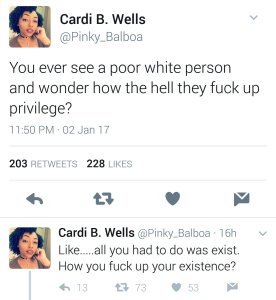
Gee, why don’t people understand that the idle rich have a unique insight into the lives of oppressed people? It’s just terrible when wealthy people don’t get the credit they deserve.
Oh, would you like to hear some of Lorde’s non-fiction? Here’s an excerpt from an essay she wrote in 1985:
… stock in Black human life in the U.S.A., never high, is plunging rapidly in the sight of white american complacencies. But as African-Americans we cannot afford to play that market’ it is our live and the live of our children that are at stake.
The political and social flavor of the African American position in the 1980s eel in particular aspects to be analogous to occurrences in the Black South African communities of the 1950s, the period of the postwar construction of the apartheid, reaction, and suppression…
The fact that African-Americans can till move about relatively freely, do not yet have to cary passbooks or battle an officially named policy of apartheid, should not delude us for a minute about the disturbing similarities of the Black situation in each one of these profit-oriented economies.
Not only does Lorde appear to be unaware that 324,000 white Americans died to free the slaves, (perhaps this is not her fault–after all, Lorde’s ancestors weren’t in the country back then and she attended such an inadequate, taxpayer-funded school that she might have never heard of this little dust-up between the states,) she also believed in 1985 that the US was moving toward a system of full apartheid.

I can forgive a bad prediction–we all make them–but why was this essay included in a book published in 2000, well after we discovered that the US was not actually moving toward apartheid? Here, let’s have an essay about phlogistan while we’re at it.
Also, Lorde is a communist and we all know exactly how well that turned out.
Another book with one of Lorde’s essays, “The Impossible will Take a While,” published in 2014, states in its introduction (not written by Lorde):
We live in a contradictory world. Dispiriting events coincide with progress for human dignity. … Only a short while ago, if you were gay, you were probably invisible and closeted, except for a handful of courageous activists who affirmed who they were despite major risks and costs.
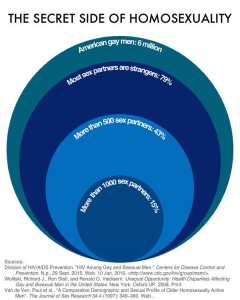 Liberals live in this strange time warp where basically the entire world prior to the Obama administration was Dark Ages. In 1984, a good thirty years before this book was published, enough gay men were courageous and active enough to have unprotected sex with hundreds or thousands of partners, resulting in an AIDS epidemic that had already claimed 7,600 American lives. By the early 90s, AIDS was killing over 40,000 people a year, but its rampage was finally checked by condom use and the massively expensive development of retroviral drugs, so that by 2002, a mere 500,000 Americans had died.
Liberals live in this strange time warp where basically the entire world prior to the Obama administration was Dark Ages. In 1984, a good thirty years before this book was published, enough gay men were courageous and active enough to have unprotected sex with hundreds or thousands of partners, resulting in an AIDS epidemic that had already claimed 7,600 American lives. By the early 90s, AIDS was killing over 40,000 people a year, but its rampage was finally checked by condom use and the massively expensive development of retroviral drugs, so that by 2002, a mere 500,000 Americans had died.
That’s a really big “handful.”
Are people simply incapable of figuring out whether strings of words make sense or bear any relationship to reality?
According to HuffPo, Study Finds People Who Fall for Nonsense Inspirational Quotes are Less Intelligent:
When Ph.D. candidate Gordon Pennycook stumbled on [the “New Age Bullshit Generator,”] he found it profoundly entertaining — at first. But then he got a little disturbed:
“I thought, ‘I wonder if people would actually rate such blatant bullshit as profound,’” …
His study, “On the reception and detection of pseudo-profound bullshit,” was published in the journal Judgment and Decision Making in November. Pennycook, along with a team of researchers from the University of Waterloo in Ontario, Canada, tested close to 800 participants on whether they could determine if a statement was bullshit. …
Defining “bullshit” … he cites the deceptively deep sentence “Hidden meaning transforms unparalleled abstract beauty.”
The study explains: “Although this statement may seem to convey some sort of potentially profound meaning, it is merely a collection of buzzwords put together randomly in a sentence that retains syntactic structure.”
“Bullshit, in contrast to mere nonsense, is something that implies but does not contain adequate meaning or truth,” it continues. …
The researchers used randomly generated sayings from New Age Bullshit Generator and another site called “Wisdom of Chopra” — the last a sarcastic nod to the new age teachings of best-selling alternative medicine author Deepak Chopra — for the study.
They found that people who are receptive to this kind of “pseudo-intellectual bullshit” are less intelligent than those who aren’t.
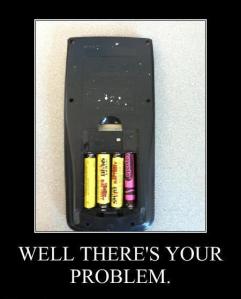 But getting back to Audre Lorde:
But getting back to Audre Lorde:
She wrote The Cancer Journals, which won the American Library Association Gay Caucus Book of the Year Award in 1981.[16] She featured as the subject of a documentary called A Litany for Survival: The Life and Work of Audre Lorde, which shows her as an author, poet, human rights activist, feminist, lesbian, a teacher, a survivor, and a crusader against bigotry.[17] …
From 1991 until her death, she was the New York State Poet Laureate.[19] In 1992, she received the Bill Whitehead Award for Lifetime Achievement from Publishing Triangle. In 2001, Publishing Triangle instituted the Audre Lorde Award to honour works of lesbian poetry.[20]
State poet laureates are in fact real things; New York law dictates:
The governor shall biennially present the New York state Walt Whitman citation of merit to a distinguished New York poet upon the recommendation of the panel constituted in this section. The poet selected shall be considered the state poet and the citation shall carry an honorarium of ten thousand dollars. …
Nothing says “oppressed” like the state of New York voting to give you $10,000 a year to write poems about gay sex and black power. (I would take Lorde’s self-description as a “warrior” more seriously if she put her money where her mouth is and actually joined the army.)
In Ada Gay Griffin and Michelle Parkerson‘s documentary A Litany for Survival: The Life and Work of Audre Lorde, Lorde says, “Let me tell you first about what it was like being a Black woman poet in the ’60s, from jump. It meant being invisible. It meant being really invisible. It meant being doubly invisible as a Black feminist woman and it meant being triply invisible as a Black lesbian and feminist”.[35]
Honey, you’re not invisible because you’re a black lesbian feminist; you’re invisible because you chose a profession that most people don’t care about and then managed to suck at it.
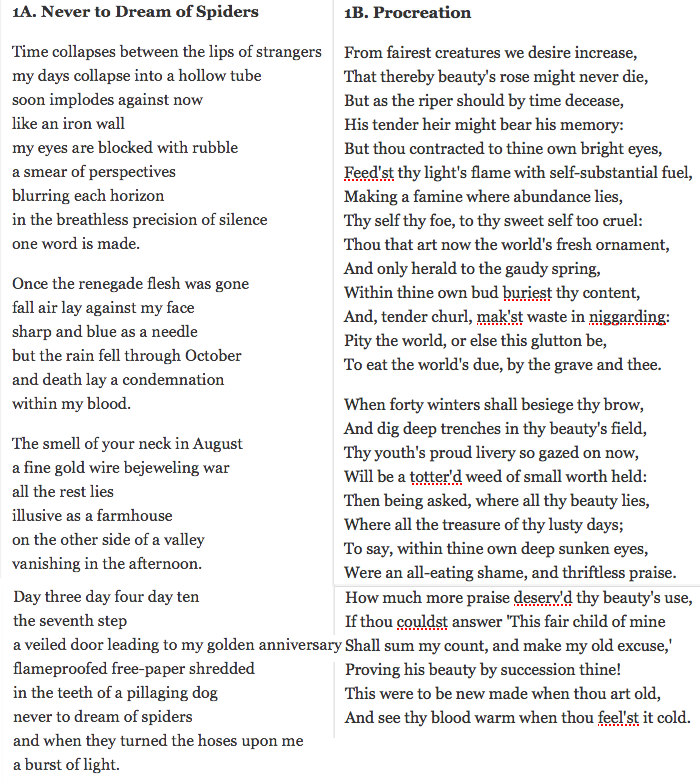
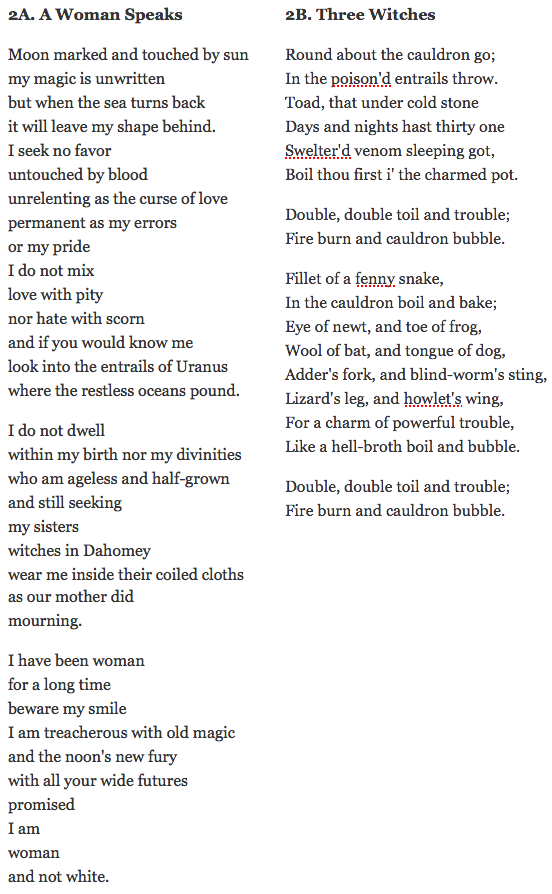
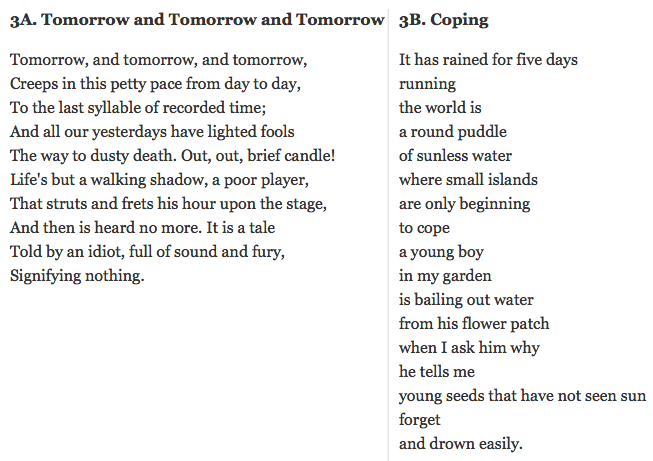


[…] Source: Evolutionist X […]
LikeLike
“It is a tale, Told by an idiot, full of sound and fury, Signifying nothing” I feel this quote is relevant and somewhat discriptive(and also has been include in the extracts)
LikeLiked by 1 person
I thought Coping was nice.
LikeLike
1 vote for coping.
LikeLike
This was hilarious and brutal. I enjoyed it greatly. Thank you.
LikeLike
Thanks. :)
LikeLike
Oh come on, this isn’t even fair! Like comparing Bacon to Velásquez.
It was simultaneously funny and sad: the descent into barbarism is clear.
By the way, is it just me or do I feel your posts are becoming bolder with time?
LikeLike
Perhaps. Maybe I am running out of easy topics.
LikeLike
[…] I am not a good judge of poetry, and in general, I think most people are no longer interested in poetry one way or another, so I am not going to judge the poems on their relative merits. I think a reasonable person could like either one. (Note: I have have in the past compared Shakespeare and Audre Lorde.) […]
LikeLike